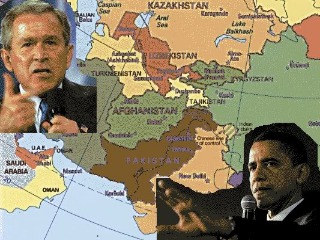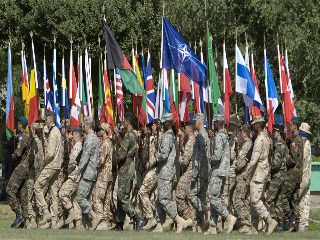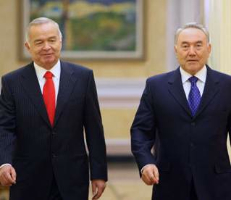AWOL: U.S. Policy in Central Asia
By Stephen Blank (the 30/10/2013 issue of the CACI Analyst)
The U.S. has decided to give up the base at Manas, presumably because that base is not worth retaining once it leaves Afghanistan next year, and will relocate the base to Romania. Washington is instead moving most of its logistics through Pakistan, with a corresponding decline in the use of the Northern Distribution Network. Once U.S. forces leave Afghanistan there will be no military presence in Central Asia to speak of. Second, the TAPI gas pipeline from Turkmenistan through Afghanistan and Pakistan, nominally the centerpiece of America’s New Silk Road initiative, languishes for lack of any financing.

NATO in Afghanistan – Paralysis as Policy?
By Richard Weitz (the 30/10/2013 issue of the CACI Analyst)
NATO’s inability to commit to a definite role in Afghanistan beyond 2014, along with perceived strategic setbacks in Central Asia and the South Caucasus, are reinforcing the narrative promoted by the Taliban, al-Qaeda, Iran, and to a lesser extent Russia and China, that a war-weary West is abandoning Eurasia. Urgent measures are needed during the next months to reverse this perception before it gains irreversible momentum. The perception is already leading regional players to hedge against the expected consequences of a diminished NATO role. NATO needs to reaffirm and clarify its commitment to Afghanistan and Eurasia.

Traffic Accident Sparks Tensions between Kyrgyzstan and Uzbekistan
By Arslan Sabyrbekov (the 04/09/2013 issue of the CACI Analyst)
On August 26, 2013, the Kyrgyz Foreign Ministry sent a note of protest to official Tashkent regarding a traffic accident involving Uzbek high ranking diplomats that, according to the reports, led to a scuffle.
Uzbekistan and Kazakhstan: Competitors, Strategic Partners or Eternal Friends?
by Farkhod Tolipov (the 08/07/2013 issue of the CACI Analyst)
Kazakhstan’s president Nursultan Nazarbayev made an official visit to Tashkent on June 13, 2013, which was expected to be a breakthrough in Uzbekistan-Kazakhstan relations. During the visit, the two states signed a Treaty on Strategic Partnership. This event can indeed be considered a breakthrough in bilateral relations between the two states, which have until recently been perceived as competitors for regional leadership in Central Asia. While Kazakhstan, Kyrgyzstan and Uzbekistan signed an unprecedented Treaty “On Eternal Friendship” in the late 1990s, the Uzbek-Kazakh friendship has always been fragile and hardly eternal. Will the new Treaty change the status-quo in Central Asia?

Astana and Tashkent Become Strategic Partners
by Sergei Gretsky (07/10/2013 issue of the CACI Analyst)
The recent visit of Kazakhstan’s President Nursultan Nazarbayev to Uzbekistan on June 13-14 was closely watched in the capitals of other Central Asian states as well as Central Asia’s neighbors. The visit continued the discussions started last year during Uzbekistan’s President Islam Karimov’s visit to Kazakhstan when the two presidents initiated a process of closer alignment between Astana and Tashkent in regional security matters. This time the two leaders have taken relations between their countries a step further by signing a Treaty on Strategic Partnership.




